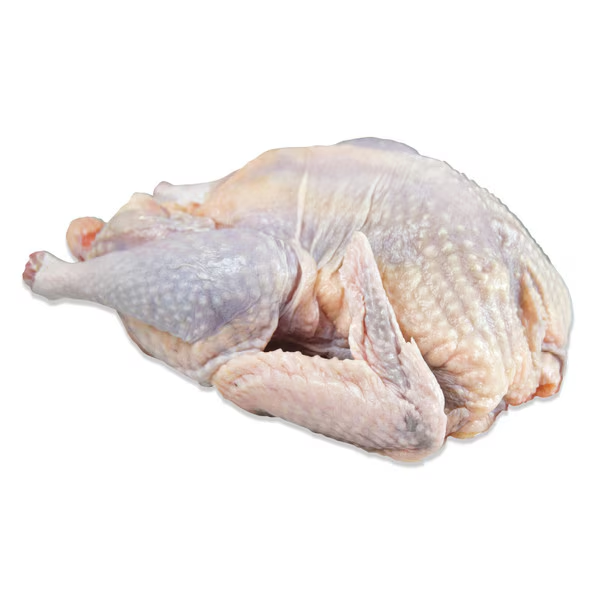Description
Origin:
Guinea fowl are native to Africa and have been domesticated for their meat and eggs. They are known for their distinctive spotted feathers and loud calls. Guinea fowl are excellent natural pest controllers, feeding on ticks and insects.
They are known for their distinctive loud calls, which can serve as a natural alarm system.
Other Names:
Yoruba:Awó
Igbo: Ọgazị
Hausa: Zabo
Health Benefits:
Lean meat, high in protein, and low in fat, making it a healthy choice for muscle building and maintenance.
Contains iron, which is important for blood health.
Rich in B vitamins, which support energy metabolism.
Nutritional Information (per 100g):
Calories: 134 kcal
Protein: 20 g
Fat: 6 g
Iron: 3 mg (17% of Daily Value)
Fun Fact: Did you Know?
The helmeted guineafowl is capable of strong flight, but it is mainly terrestrial often choosing to run rather than fly. They typically roost in trees.
Uses:
Often roasted, grilled, or stewed.
In Nigerian cuisine, guinea fowl is used in a variety of dishes, including soups and stews.
Recipes & Videos:
International Recipe: Roast Guinea Fowl Video: How to Roast Guinea Fowl
Local Recipe: Nigerian Guinea Fowl Pepper Soup Video: Nigerian Guinea Fowl Pepper Soup Recipe
Guinea Fowl
Best Storage Method: Refrigerate or freeze in airtight packaging.
Shelf Life:
In the fridge: 1-2 days.
In the freezer: 9-12 months.

 Cart is empty
Cart is empty 











Reviews
There are no reviews yet